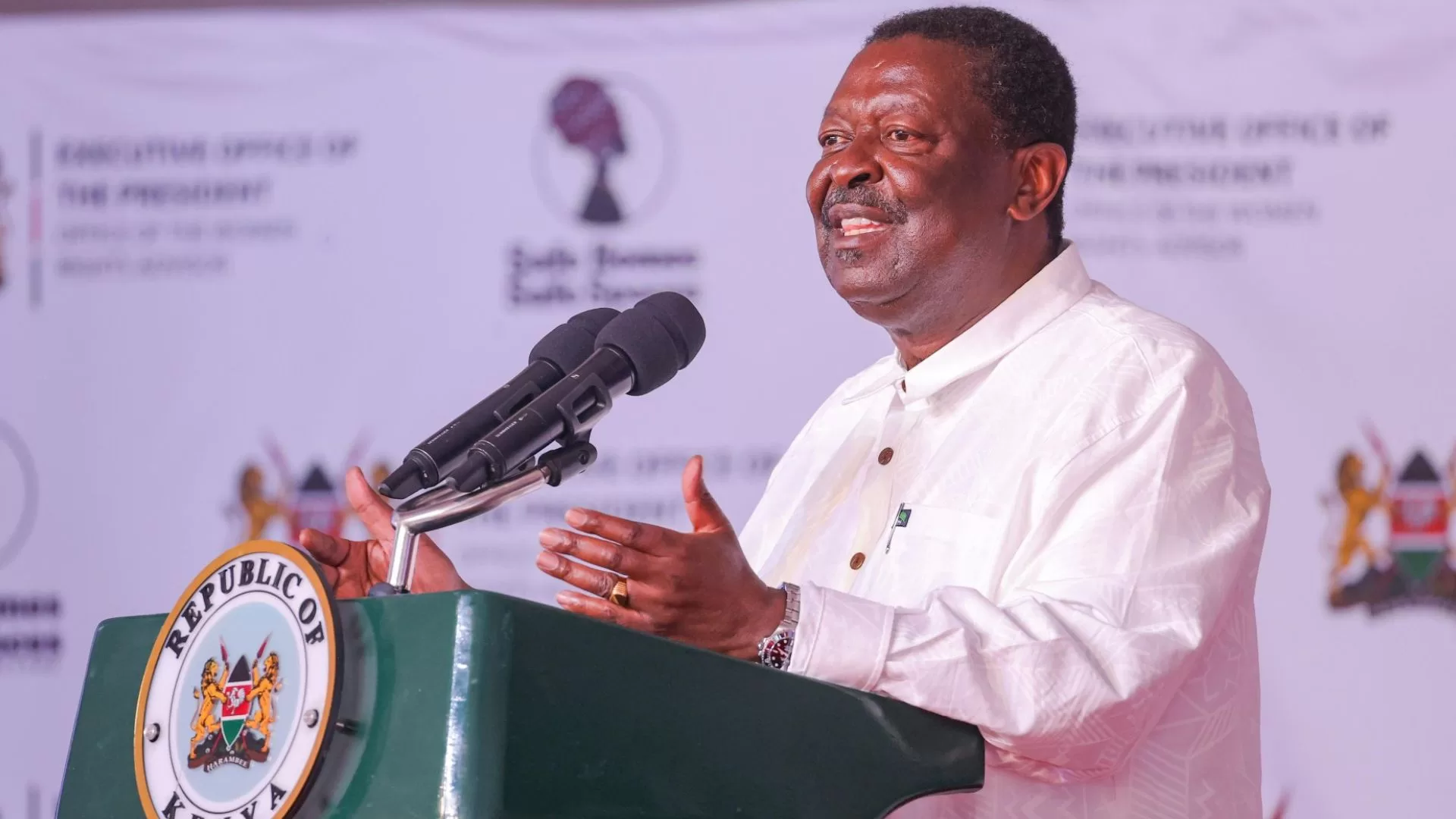All TVETs to Get Internet Connectivity, Says Mudavadi.
The government is committed to connecting all Technical and Vocational Education Training Institutions (TVETs) to the internet.
Prime Cabinet Secretary Musalia Mudavadi stated that this initiative aligns with the broader establishment of 1,450 digital hubs across the country. The plan is designed to create jobs and livelihood opportunities, particularly for the youth.
Out of the 1,450 planned hubs, 274 digital hubs have already been established in TVET institutions nationwide. These hubs aim to provide Wi-Fi access to students, researchers, and small business operators within their coverage areas.
The hubs ensure that users can connect to the internet using their own devices, leveraging the government’s investment in fiber-optic infrastructure.
“The digital hub model will ensure that everyone within the coverage area, including students, researchers and small business operators, has access to the Wi-Fi that it provides,” said Mudavadi.
Significance of Digital Hubs in the Economy
Mudavadi emphasized that the “Jitume ICT Digital Hubs” play a pivotal role in the country’s growing digital economy.
Join Teachers Updates on Facebook
These hubs empower communities by offering access to free internet, enabling young people to gain digital skills, access global e-learning platforms, and participate in e-commerce.
Reliable power sources, including the national grid and solar systems, are essential to maximizing the hubs’ impact.
| Key Features of Digital Hubs | Benefits |
|---|---|
| Free Wi-Fi and internet access | Promotes e-learning, digital skills, and online businesses. |
| Use of fiber-optic infrastructure | Ensures high-speed, reliable internet connectivity. |
| Solar-powered systems in remote areas | Guarantees uninterrupted service. |
According to Mudavadi, the government’s use of digital technologies has improved efficiency and created numerous opportunities for socioeconomic transformation.
He cited President William Ruto’s leadership in celebrating the first anniversary of the e-Citizen Directorate, which has significantly expanded online access to government services.
Currently, 17,692 services are available on the platform, representing 85% of the 20,721 services identified for onboarding.
To improve revenue collection, the President directed the consolidation of 1,130 pay bill numbers into a single pay bill, 222222, reducing revenue leakages and increasing monthly collections by billions of shillings.
Local Initiatives in Kakamega County
At the launch of the Information and Communication Technologies Digital Hub and Digital Economy Conference at Kakamega County Polytechnic, Kakamega Governor Fernandes Barasa announced plans to equip 12 polytechnics in the county’s 12 constituencies with modern computers and internet connectivity.
ALSO READ: Nyeri County Announces Recruitment of 200 Interns
This program aims to reduce the digital divide and encourage greater participation in social, political, and economic activities.
| Notable Developments in Kakamega County | Impact |
|---|---|
| Equipping 12 polytechnics with computers | Enhances digital literacy and access to technology. |
| Expanding internet connectivity | Bridges knowledge gaps in local communities. |
Conclusion
Mudavadi highlighted the government’s commitment to leveraging digital hubs as a cornerstone for economic transformation.
By empowering youth and local communities, these initiatives contribute to Kenya’s positioning as a leader in integrating digital technologies into citizen services and economic activities.
All TVETs to Get Internet Connectivity, Says Mudavadi.
Follow Teachers Updates on Facebook, LinkedIn, X (Twitter), WhatsApp, Telegram, and Instagram. Get in touch with our editors at [email protected].


Discussion about this post